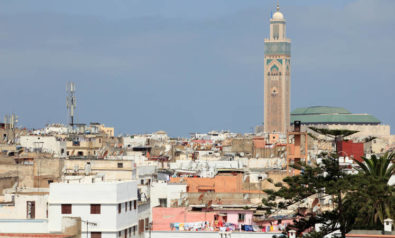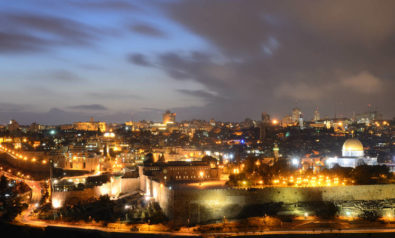#GlobalPOV, a video project started at UC Berkeley, explores the dangers of viewing poverty as a puzzle to solve.
Generation Y is on a mission to solve global poverty. A group of professors at the University of California, Berkeley is on a mission to stop them.
It’s not that these Berkeley academics are not dedicated to alleviating poverty and inequality — in fact, quite the opposite. It’s just that they want students first to study and think about the history of attempts to solve, alleviate, and even understand poverty.
The academics in question teach classes for UC Berkeley’s Global Poverty & Practice (GPP) minor, a program of the Blum Center for Developing Economies. Earlier this year, they completed a video series called #GlobalPOV, which urges people to develop new ways of thinking about poverty and inequality, specifically by recognizing the structural roots of poverty and the roles we all play in an unequal world. So far, 3 million people have viewed the video collection.
Unsuccessful Development Efforts
Some facts to consider: Nearly half of the world’s population — more than 3 billion people — live on less than $2.50 a day. More than 1.3 billion live in extreme poverty — less than $1.25 a day. More than 870 million people worldwide do not have enough to eat. Meanwhile, the wealthiest 2% of the world population own more than 50% of its assets.
When I enrolled at UC Berkeley, I dreamt of joining the Peace Corps to help the less fortunate. Like other idealist classmates, I imagined a life full of good intentions, poverty action, and public service. After taking the introductory course of the GPP minor and participating in the production of the #GlobalPOV project, I’m a bit more skeptical of such notions. Add on a semester studying in Nicaragua, and I’m right out dubious.
Even before the idea of development was formalized into policies and institutions in the 1940s, the Global North sought to direct the economic, political, and social development of the Global South. As notions that poverty necessitated global attention grew, so did the dollar amounts of foreign aid and funding for development projects. Yet trillions of dollars and 70 years later, many critics have documented that the majority of development efforts have largely failed.
Not only do experts tend to cut the context out of the box they’ve drawn around poverty, they also often cut themselves out of the picture too.
For example, in Africa alone, Organization for Economic Co-operation and development (OECD) countries spent over a trillion dollars on foreign aid. Yet real per-capita income in Africa today is lower than it was in the 1970s. Furthermore, despite the fact that between 1990 and 2010, the global poverty rate was cut in half, the number of people living on less than a dollar a day in Africa has nearly doubled in the last two decades.
Others may point out that Africa is a unique case, and look east for a success story — specifically, to China. Over the last thirty years, China has had the largest drop in poverty among developing countries, pulling over 680 million people out of poverty. Yet within the country — and across the globe — income inequality continues to rise.
We clearly have the data, experts, and political will to carry out development projects. And while some work — especially small scale, local projects — are having success, as a whole, we’ve failed to solve much.
Can Experts Solve Poverty?
The #GlobalPOV project aims to explain — or rather, explore — why.
The latest #GlobalPOV video is one of my favorites. It poses a provocative question: “Can Experts Solve Poverty?” GPP Lecturer Khalid Kadir explores the dangers of viewing poverty as a puzzle to solve. Kadir, who received his PhD in Civil & Environmental Engineering at UC Berkeley in 2010, shares how his discipline is also responsible for making grave mistakes in the field of development work.
According to Kadir: “We all have experts in our lives. Computer experts, plumbing experts, legal experts – you name the problem, and there is someone out there who specializes in addressing that problem. Whether it’s a broken car, a computer glitch, or even a broken heart — call the expert, they’ll fix us right up. So who do we call when society is broken? We call poverty experts. But who is a poverty expert, and can experts solve poverty?”
In the video, Kadir explores why poverty cannot be addressed in technocratic terms and is not a problem any single expert can solve. Experts are trained to draw boxes around problems, he says. Boxes, however, hide context. Given that the problems poverty experts try to solve (hunger, violence against women, public health crises, etc.) are often just the physical symptoms of unequal political relationships, they cannot be solved in the long run by ignoring the context in which they were created in.
What is the consequence of treating poverty as a technical, rather than political, issue? We end up simply moving problems from one location to another, failing to solve much.
Take the case of Egypt in 1942. As Timothy Mitchell explains in Rule of Experts, starting in 1942, three quarters of a million people were infected with malaria after a parasite was carried into the country by a foreign mosquito, killing about 100,000-200,000 people over the course of three years. To defeat the disease, experts zeroed in on what they saw as the source of the problem: the malaria carrying mosquito.
But in doing so, Kadir explains, the experts failed to recognize that the malaria epidemic was created by previous rounds of expert-led interventions: railways, canals, agricultural industrialization, cash crops, etc.
Failing to recognize the mistakes of their predecessors, this intervention resulted in new problems as well. Focusing on the mosquito, experts resolved that the ideal solution would be to use the toxic insecticide, DDT. Yet DDT created new health and environmental problems, which once again were tackled by yet another set of experts.
Critical discussions on poverty and inequality must move beyond Twitter and the classroom, and into mainstream media outlets, policy circles and, most importantly, into our own personal lives.
Not only do experts tend to cut the context out of the box they’ve drawn around poverty, they also often cut themselves out of the picture too. As illustrated by the above example, far too often, engineers, economists, public health specialists, and other experts forget their own relation to the world and the role they, their community, or their discipline may have played in creating the problems they are now attempting to address.
No Drawing Boxes
While Kadir ends with a strong assertion that we need more than just technical experts if we want to solve poverty, he fails to provide many concrete answers. No, he asserts, experts cannot solve poverty, because poverty is not something one can solve. But then what? What are we millennials to do?
Herein lies the best part of the project: The goal of #GlobalPOV is not to provide clean answers (no drawing boxes, remember) but to illustrate that importance of critically engaging with these questions, criticizing our own actions, as well as the videos’ narrators, and bringing these conversation to larger platforms.
Towards this effort, the Blum Center uses the #GlobalPOV handle on Twitter to create a space for students, alumni, and the online community at large to engage in conversations on poverty. The Twitter handle was originally created as a means to facilitate in-class discussion for the GPP minor’s introductory course of about 750 students and to create a space for the dialogue to move beyond the classroom. A snapshot of the Twitter feed today might include the likes of Jeffrey Sachs, UC Berkeley Professor Ananya Roy, a Marshall Scholar, or your old dorm-mate.
Yet, this is only the starting point. Public discourse won’t change policy on its own. If we wish to find more effective ways to alleviate poverty and inequality, we must first ask why the current methods aren’t working, and then we must act.
Critical discussions on poverty and inequality must move beyond Twitter and the classroom, and into mainstream media outlets, policy circles and, most importantly, into our own personal lives. This means students, academics, and others who participate in these discussions on poverty and inequality facilitated by the #GlobalPOV project will need to take action — whether that means local community engagement or international policy advocacy.
While we may never fully resolve the questions these videos pose, we must continue asking and exploring them. And most importantly, we must remain actively engaged because when it comes to poverty, the stakes are incomprehensibly high.
The views expressed in this article are the author’s own and do not necessarily reflect Fair Observer’s editorial policy.
Support Fair Observer
We rely on your support for our independence, diversity and quality.
For more than 10 years, Fair Observer has been free, fair and independent. No billionaire owns us, no advertisers control us. We are a reader-supported nonprofit. Unlike many other publications, we keep our content free for readers regardless of where they live or whether they can afford to pay. We have no paywalls and no ads.
In the post-truth era of fake news, echo chambers and filter bubbles, we publish a plurality of perspectives from around the world. Anyone can publish with us, but everyone goes through a rigorous editorial process. So, you get fact-checked, well-reasoned content instead of noise.
We publish 2,500+ voices from 90+ countries. We also conduct education and training programs
on subjects ranging from digital media and journalism to writing and critical thinking. This
doesn’t come cheap. Servers, editors, trainers and web developers cost
money.
Please consider supporting us on a regular basis as a recurring donor or a
sustaining member.
Will you support FO’s journalism?
We rely on your support for our independence, diversity and quality.










Comment